
PUMPA - SMART LEARNING
எங்கள் ஆசிரியர்களுடன் 1-ஆன்-1 ஆலோசனை நேரத்தைப் பெறுங்கள். டாப்பர் ஆவதற்கு நாங்கள் பயிற்சி அளிப்போம்
Book Free DemoThe lesson "The Wonder Called Sleep" talks about the concept of sleep. Of course, sleep needs no introduction. We know very well what sleep is. Sleep is a state of rest. During this state, our body and mind drift into a state of unconsciousness. We call this state an unconscious rest because, unlike the relaxation we take in between the day, we are almost unaware of what happens when we are asleep.

Sleep is a state of unconscious rest
When you are in a deep sleep, you may not realise that you have shifted your posture or have scratched your nose. You may not even realise that you've had a short power cut or that someone had crept in your and left while you were asleep. Of course, the latter part is quite creepy, but sleep is indeed an unconscious state where you are entirely oblivious to what is happening around us.
So, what causes sleep? Or why do we sleep? And, more importantly, why is it important to sleep?
To answer our first question, fatigue causes sleep. When we are tired, we tend to feel sleepy.
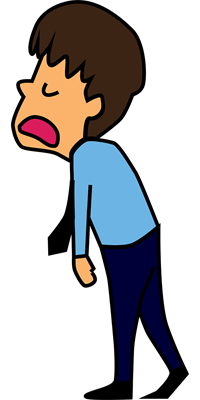
Fatigue causes sleep
But why do we sleep? When we sleep, our body starts recovering from the tiredness caused by the day’s activities. We could recall feeling very tired in the evening, but imagine how we would feel after a good night's sleep? Very brisk and energetic, right? Or imagine that we never had enough sleep. How do you think we would feel? Drowsy, tired, and easily irritated.
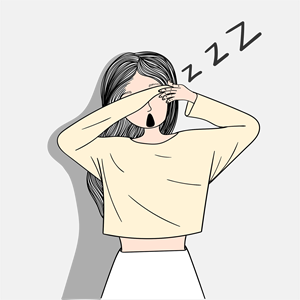
Lack of sleep can make you feel tired and irritated
Lack of sleep can make us feel sluggish and lazy, blur our vision, disrupt our concentration, lose interest in work or studying, become less creative and productive, make more mistakes than usual, and so on. So sleep is essential to us. Lack of proper sleep (over a longer period) can make us look older than we are, help us gain unhealthy weight, cause us diseases, and may even lead to our death.
Hence, our body needs sleep to keep ourselves healthy, for the day and throughout our lives. After a good sleep, we become alert and active again. A night's worth of rest will make us ready for the normal activities of the day.

After a good sleep, we become alert and active again
After sleeping through the night, we wake up in the morning to begin a new day. Do we remember what happened while we were asleep? We might, but not always.
Sometimes, all that we can recollect is that we have had a dream. Imagine us spending about eight hours sleeping, and all that we can remember is that we have had a dream. Did you know that a dream lasts somewhere between a few seconds and 30 minutes? And a person can have about 4 to 7 dreams a night.
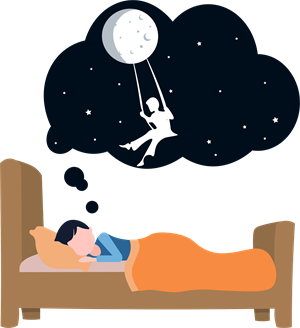
We might remember a dream from the previous night
Sometimes it is hard to recollect what our dream was about as most dreams are immediately or quickly forgotten. However, we do wake up in the morning feeling that we have had a dream. The dream is quite vivid because we must have dreamt it during the REM stage of sleep.
Though we don't feel it, so many things happen in our system while we are asleep. Our biological system repairs and rejuvenates while we are sleeping. As we sink deeper into sleep, our muscles relax. Our heartbeats become slower. Our temperature and blood pressure go down. Our mind and body grow stronger, and we gain more immunity power during our sleep. The ever-active brain also slows down so that we won’t be able to think or act consciously. While everything become seemingly inactive, something interesting takes place inside our head: we have dreams. We dream several dreams a night with intervals of 1 or 2 hours.
While asleep, we drift into several cycles of sleep. There would come a time when we become partly conscious and a time when we are unconscious.
Speaking of sleep, we don't sleep just like that. We go through various cycles of stages. Sleep consist of 2 primary phases: Non- REM and REM. (REM refers to rapid-eye-movement.)
While non-REM can be further broken down into 3 or 4 stages, REM consists of a single stage. These stages go around in cycles throughout our sleep. Let us take a look at the process.
1. Non-REM sleep 1: This is the stage that follows immediately after we fall asleep. We begin to fall asleep during the stage, and it generally lasts only a few minutes. During the phase, we are almost conscious but are probably too sleepy to act. Our heartbeats and breathing start to slow down, and our muscles begin to relax.
Though we don't feel it, so many things happen in our system while we are asleep. Our biological system repairs and rejuvenates while we are sleeping. As we sink deeper into sleep, our muscles relax. Our heartbeats become slower. Our temperature and blood pressure go down. Our mind and body grow stronger, and we gain more immunity power during our sleep. The ever-active brain also slows down so that we won’t be able to think or act consciously. While everything become seemingly inactive, something interesting takes place inside our head: we have dreams. We dream several dreams a night with intervals of 1 or 2 hours.
While asleep, we drift into several cycles of sleep. There would come a time when we become partly conscious and a time when we are unconscious.
Speaking of sleep, we don't sleep just like that. We go through various cycles of stages. Sleep consist of 2 primary phases: Non- REM and REM. (REM refers to rapid-eye-movement.)
While non-REM can be further broken down into 3 or 4 stages, REM consists of a single stage. These stages go around in cycles throughout our sleep. Let us take a look at the process.
1. Non-REM sleep 1: This is the stage that follows immediately after we fall asleep. We begin to fall asleep during the stage, and it generally lasts only a few minutes. During the phase, we are almost conscious but are probably too sleepy to act. Our heartbeats and breathing start to slow down, and our muscles begin to relax.
2. Non-REM sleep 2: This stage is a period of light sleep. This takes place before you enter deep sleep, and it lasts for roughly 25 minutes. As we drift further into sleep, our body and mind would relax further.
3. Non-REM sleep 3: These stages are when we drift into a deep sleep. Our body performs a variety of critical health-promoting tasks in these final non-REM stages. The phase lasts for about 20 to 40 minutes.
4. REM sleep: This stage occurs about 1 to 2 hours after falling asleep. It is called REM because our eyes move rapidly during the phase. The stage lasts for about 60 minutes. Unlike the Non-REM stages, the breathing and heart rate increases. Our brain activity gets increased while the body becomes unmovable and would feel temporally paralysed. Also, more importantly, we do most of our dreaming during REM sleep. Since our brain paralyses our muscles during the stage, we do not act out the dreams.
Hence, a person usually progresses through the three stages of non-REM sleep before stepping into REM sleep. This sleep-cycle is repeated about 3 to 4 times each night. This is the reason why our memories from the night have blackouts in between.
Due to the cycles, we are likely to have 3 to 4 dreams every night, although we might end up remembering only one of them. We retrieve the dream the most recent REM very quickly while the dreams dreamt during the earlier cycles are mostly forgotten.
3. Non-REM sleep 3: These stages are when we drift into a deep sleep. Our body performs a variety of critical health-promoting tasks in these final non-REM stages. The phase lasts for about 20 to 40 minutes.
4. REM sleep: This stage occurs about 1 to 2 hours after falling asleep. It is called REM because our eyes move rapidly during the phase. The stage lasts for about 60 minutes. Unlike the Non-REM stages, the breathing and heart rate increases. Our brain activity gets increased while the body becomes unmovable and would feel temporally paralysed. Also, more importantly, we do most of our dreaming during REM sleep. Since our brain paralyses our muscles during the stage, we do not act out the dreams.
Hence, a person usually progresses through the three stages of non-REM sleep before stepping into REM sleep. This sleep-cycle is repeated about 3 to 4 times each night. This is the reason why our memories from the night have blackouts in between.
Due to the cycles, we are likely to have 3 to 4 dreams every night, although we might end up remembering only one of them. We retrieve the dream the most recent REM very quickly while the dreams dreamt during the earlier cycles are mostly forgotten.
As seen previously, sleep goes in a circle of stages ranging between light sleep to deep sleep, followed by REM sleep. Most of us regain our consciousness while we are in the REM state and lose it when we sail back to stage two of the cycle. And when our body and mind received enough sleep, the stage would gradually move to REM, and we would eventually wake up.
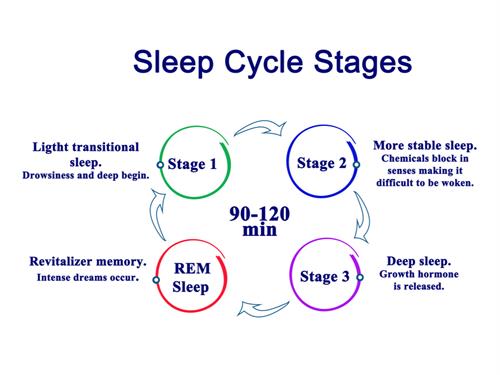
Sleep cycle stages
As we wake up, our body would get back to its normal mode. Our temperature, blood pressure, heartbeat, and breathing turn normal. By the time we are fully awake, we would have forgotten most of our dreams.

Our body turns normal and most of our dreams get forgotten as we wake up
We have heard a lot about dreams. So, what is a dream?
Dream is a series of events, thoughts, images, and sensations that happen in our mind when we are sleeping. Fundamentally, it is an activity of mind. It is almost like a movie that we watch in our mind. However, the events may not be correlated or may even seem very strange. While some of the dreams are probable, others are not.
For instance, you may dream of getting a pet you like. This is an example of a probable dream because the situation is likely to happen. Or you may have a dream of meeting a person you admire. This is also a case of probable dream because the situation is not entirely impossible. But imagine you have a dream where your kitten suddenly turns into a beautiful person or a gigantic dog? That is unlikely to happen, and hence it is an improbable dream.
Dreams are essential for various reasons. It can help us sleep through the night without disturbances. For instance, imagine your alarm ringing when you are dreaming. Your dream would take the sound from the alarm and will interpret it as a telephone or doorbell. You would also have a dream of waking up and attending to the same. Hence, dreams would help you sleep through disturbances.
Another critical feature of dreams is that it can tell a lot about one’s problems. When understood properly, dreams can give solutions to those problems. Often, one’s true emotions, fears, desires, and needs are reflected in our dreams. It can also talk about one’s personality.
However, you should never be stupid while interpreting dreams. For one thing, dreams can never reveal anything about the future. Though dreams can be psychological, there is no divination (the art of prediction) involved. And dreams are so fascinating that people study it scientifically. The field is called Oneirology. Furthermore, if you want to study dreams (from a psychological point of view), you would have to learn about (if not read) Sigmund Freud's "The Interpretation of Dreams" (1899 ).
However, you should never be stupid while interpreting dreams. For one thing, dreams can never reveal anything about the future. Though dreams can be psychological, there is no divination (the art of prediction) involved. And dreams are so fascinating that people study it scientifically. The field is called Oneirology. Furthermore, if you want to study dreams (from a psychological point of view), you would have to learn about (if not read) Sigmund Freud's "The Interpretation of Dreams" (1899 ).
Sleep is a common experience. We do that once or twice every day/night. Yet, it is also crucial to our living. Sleep is filled with wonders and packed with power. However, not all of us stop to think about the greatness, beauty, or the importance of sleep.
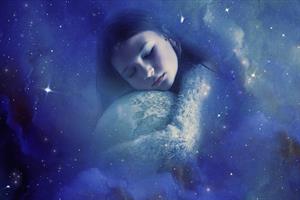
Sleep, though a common experience, is filled with wonders and power
However, many poets have written beautiful poems about sleep. Poets such as William Shakespeare and Sir Philip Sidney have each written sonnets (27 and 39 respectively) on sleep. Philip Larkin contemplates on the best way to sleep in his poem "How to Sleep".
Here, the poem describes the experience of falling asleep.
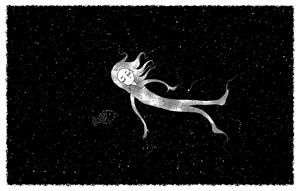
'Lights Out' describes the process of falling asleep
The poet compares the act of falling asleep to a journey. He says the speaker has come to the borders of sleep. He describes it in such a away that it would seem as if he is travelling to a different land. The line "I have come to the borders of sleep", though, means that the speaker is about to fall asleep.
The poet then compares sleep to an "unfathomable deep forest". He says that sleep is like a forest that is deep, mysterious, and beyond our capacity to understand and explore. So, while we are at the forest called sleep, we are bound to lose control over our consciousness and would get lost eventually.
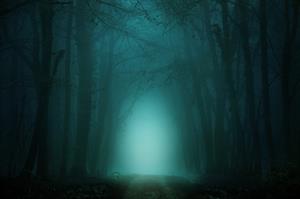
Sleep is like an unfathomable deep forest
The poet says that we would lose our way no matter how long or short the sleep is. The line "however straight or winding" might be a reference to the stages of sleep. As we had seen previously, sleep involves a cycle of Non-REM sleep and REM sleep. The poet might be referring to this cycle when he described sleep as "winding" (meaning going in spiral). On the other hand, if the person is having a short nap, the process of sleep may turn out to be a "straight" line where the 4 to 5 stages of sleep appear only once. Hence, we would give in to sleep eventually. Moreover, the we "cannot choose" whether to stay awake or fall asleep once we reach the border.
No person or a book could convince the poet from staying awake. It could be the poet's favourite person or an exciting book that he loves reading or writing, but none could stop the poet from falling asleep.
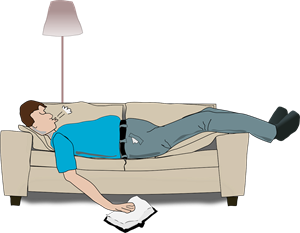
No book (or a person) could keep the poet awake
Sleep is an "unknown" world. One has to leave their consciousness behind to thread through the world of sleep. Back from the world, you would probably have no recollection of what took place while you were asleep. Moreover, sleep is a world where you travel without a company. You will have to "enter and leave alone".
Sleep is an "unknown" world. One has to leave their consciousness behind to thread through the world of sleep. Back from the world, you would probably have no recollection of what took place while you were asleep. Moreover, sleep is a world where you travel without a company. You will have to "enter and leave alone".
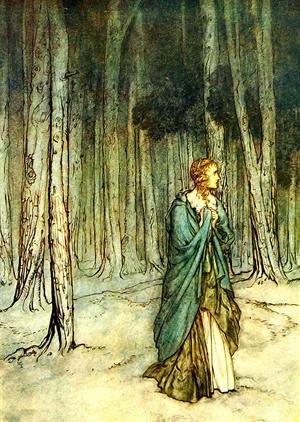
Sleep is an unknown world where you travel alone
The poem describes the concept of sleep at its best. It makes us wonder at the beauty and the mysterious nature of sleep. At the same time, it also explains how inevitable the sleep is. Once you are in the border, you cannot refrain yourself from falling asleep.